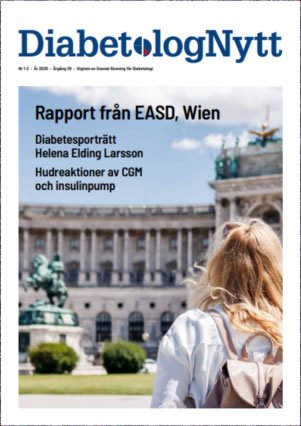In pregnancy, pesticides may be a trigger for gestational diabetes
This article is a collaboration between MedPage Today® and:
-
Action Points
- Note that this study was published as an abstract and presented at a conference. These data and conclusions should be considered to be preliminary until published in a peer-reviewed journal.
- A large meta-analysis demonstrates a link between exposure to pesticides and the later development of diabetes.
- Other data suggest that exposure to pesticides during pregnancy may be associated with an increased risk of gestational diabetes.
STOCKHOLM — New studies, including a meta-analysis, appear to show that there is a link between exposure to pesticides and the later development of diabetes, researchers reported here.
Among the papers included in the poster presentation was a meta-analysis of 13 studies focusing on just type 2 diabetes which found that people exposed to pesticides such as DDT were 61% more likely to develop type 2 diabetes [OR 1.61 (95% CI 1.37-1.88), P<0.0001)], said Fotini Kavvoura, MD, PhD, clinical lecturer in diabetes and endocrinology at Oxford University, England.
"The pathophysiological mechanisms underlying this association need to be further assessed experimentally," she said. "Guidelines on the use of pesticides should reflect the current evidence on the risk of diabetes."
The review was an update of the one commissioned by European Food Safety Authority, which was published in 2013. The study presented in the conference included all studies ever published on the topic until May 2015. Kavvoura told MedPage Today that the research included more than 80,000 people in studies that were produced from 2006 through May 2015, and mainly included older adults, the typical population for type 2 diabetes, and who had experienced exposure to pesticides.
"These pesticides are generally banned now in Europe and elsewhere," Kavvoura said, "but they tend to stay in the body in the liver, the pancreas, and in muscles."
"How diabetes develops is considered to be an interplay between genetic and environmental factors," she explained. "Emerging evidence suggests that environmental contaminants — including pesticides — may play an important role in the pathogenesis of diabetes."
Leda Chatzi, MD, PhD, assistant professor of epidemiology and nutrition at the University of Crete, Heraklion, Greece, reported that women exposed to pesticides appear to have a four-fold increased risk of gestational diabetes.
In a press release prepared by the EASD staff, the authors said, "These findings suggest that women with high polychlorinated biphenyls (PCBs) levels in early pregnancy had higher risk for gestational diabetes. Further studies are needed to replicate these results and to evaluate potential biological mechanisms underlying the observed associations.
"As countries around the world deal with an increasing prevalence of gestational diabetes, the findings are important from a public health perspective as knowledge of environmental risk factors could help to reverse this trend."
"Our future research in this cohort will examine whether prenatal exposure to pesticides is associated with alterations in glucose metabolism and diabetes development of the offspring in early childhood."
The study was published as an abstract, but the poster was not presented due to a travel-related accident to a co-author.
The research suggests that a 10-fold increased exposure to organic pollutants in early pregnancy is associated with a 4.4 times increased risk of a pregnant woman developing gestational diabetes, Chatzi reported.
Persistent organic pollutants are a group of diverse substances, including PCBs and organochlorine pesticides that are resistant to biodegradation and present almost everywhere in the environment, she noted. "Exposure to endocrine disrupting chemicals such as persistent organic pollutants have been linked to diabetes and metabolic disturbances in epidemiological and animal studies," the researchers reported.
The researchers accessed the Rhea pregnancy cohort in Crete which prospectively examines a population-based sample of pregnant women and their children. Female residents who became pregnant during a period of one year starting in February 2007 were contacted and asked to participate in the study. The first contact was made at the time of the first comprehensive ultrasound and several contacts followed.
The researchers identified 68 women who developed gestational diabetes and calculated that women with more advanced exposure to the pesticides had a higher risk of gestational diabetes.
In commenting on the findings, Bo Ahren, MD, professor of medicine at the University of Lund in Sweden, told MedPage Today, "There are a number of possible biological mechanism that might be at play in these observations.
"Pesticides may be toxic to T-cells which are important in glycemic control," he said. He also suggested that pesticides might have an impact on insulin resistance.
"These are hypotheses that need to be tested," he said.
From www.pedpage.com
Nyhetsinfo
www red DiabetologNytt

